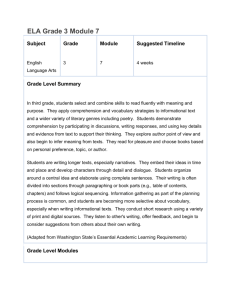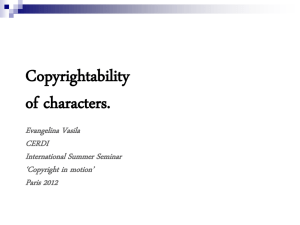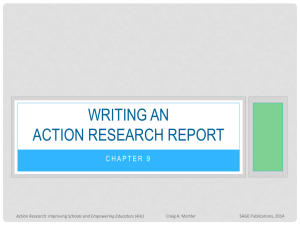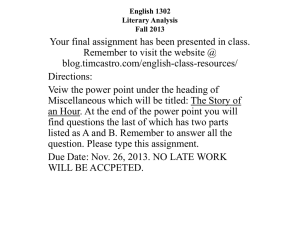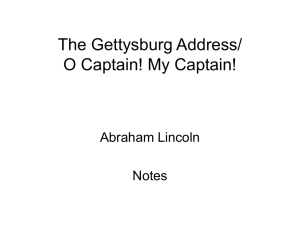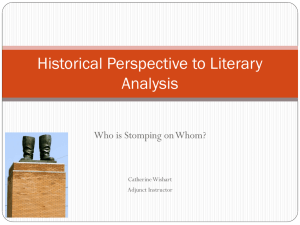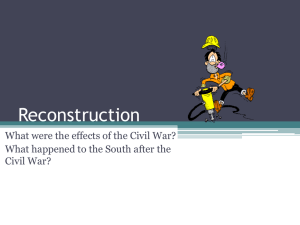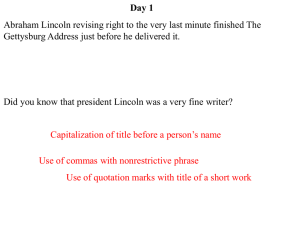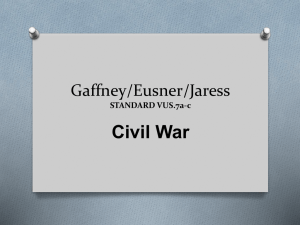Conventions of Literary Analysis
advertisement
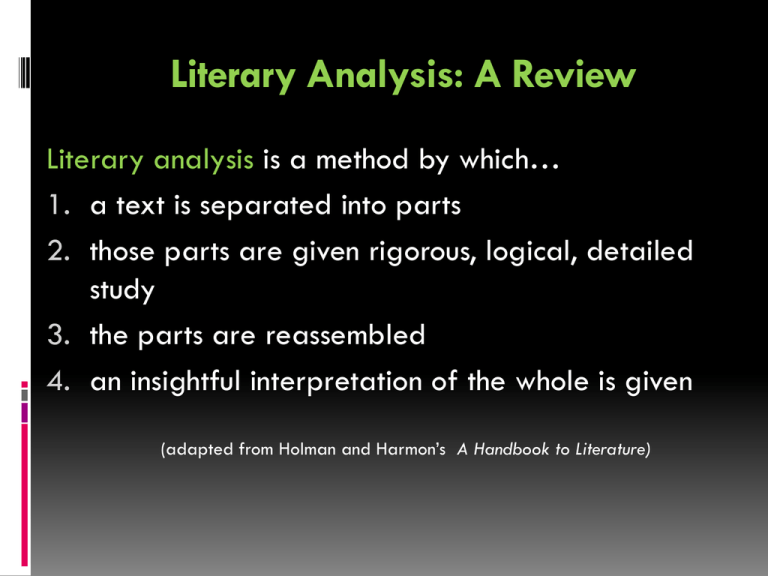
Literary Analysis: A Review Literary analysis is a method by which… 1. a text is separated into parts 2. those parts are given rigorous, logical, detailed study 3. the parts are reassembled 4. an insightful interpretation of the whole is given (adapted from Holman and Harmon’s A Handbook to Literature) Conventions of Literary Analysis (adapted from BCCC Tutoring Center doc) Writing Style Use formal, academic diction (word choice)… No slang, abbreviations, or slashes Don’t throw in words from the thesaurus, either! …without being stiff or awkward… …striving to be clear, concise, and straightforward! Conventions of Literary Analysis Voice Write in third person. First person (I, me, our, we) and second person (you) are too informal for academic writing Conventions of Literary Analysis Verb Tense Use “literary present” tense when writing about a text: Sullivan Ballou’s letter addresses… Lincoln’s speech explores… Use past tense only when writing about a historical event: Ballou wrote the letter while in Washington D.C. Lincoln spoke at the dedication of a new war cemetery. Conventions of Literary Analysis Titles of Texts Format these correctly! No excuses! Longer Works: Shorter Works: (novel, newspaper, film, epic poem, TV Series) (short story, article, poem, TV episode, speech) Underline OR Italicize Use “Quotation Marks” Hullabaloo in the Guava Orchard “Harrison Bergeron” The Daily Mirror “The General Situation is Favourable” The Battle of the Somme “Dulce et Decorum Est” (the documentary film) Downton Abbey “Gettysburg Address” Conventions of Literary Analysis Author’s Name First time, use author’s first and last name Abraham Lincoln Every time thereafter, the last name will suffice Lincoln Conventions of Literary Analysis Quote “Blending” (Quotation Integration) A Single Word or Short Phrase Incorporate it fully into the syntax of your sentence Lincoln entreats his people to keep fighting so that those who have already died in the war “shall not have died in vain.” The people must be “dedicated to the great task” of keeping the nation alive, whatever the cost; even though Lincoln does not state it explicitly, he implies that more lives must be sacrificed so that the nation “shall not perish from the earth.” Conventions of Literary Analysis Quote “Blending” (Quotation Integration) A Longer Phrase or Complete Sentence Use a “signal phrase” to introduce it Lincoln invokes the power of the location by saying, “We are met on a great battle-field of that [the civil] war.” Conventions of Literary Analysis Quote “Blending” (Quotation Integration) An Entire Sentence that is Most Powerful if Kept Whole Introduce it with a sentence of your own and a colon Ostensibly, Lincoln’s task is to give a formal dedication of the new war cemetery, but he subverts that expectation by contending that it is an impossible task: “But, in a larger sense, we can not dedicate, we can not consecrate, we can not hallow this ground.” Lincoln has deliberately shifted the focus of his speech to the soldiers…
